Menu
Search
START TYPING AND PRESS ENTER TO SEARCH

Transportation systems in India play a pivotal role in economic and social development of a region by facilitating movement of citizens and goods and at the same time provide economies of scale. The Delhi-Ghaziabad-Meerut Namo Bharat corridor being implemented by National Capital Region Transport Corporation (NCRTC), under the aegis of Ministry of Housing and Urban Affairs, Government of India (GOI), is expected to significantly contribute to urban mobility in the National Capital Region (NCR) and alongside shall also enable economic opportunities, thereby ameliorating the socio-economic predicament of the inhabitants of the NCR.
Japan established the Japan Fund for Poverty Reduction (original JFPR) in the year 2000 to augment and drive Asian Development Bank’s (ADB) projects supporting poverty reduction and related social development activities in Asia and the Pacific.
With evolving global dynamics, ADB rechristened the original JFPR to Japan Fund for Prosperous and Resilient Asia and the Pacific (JFPR) in September 2021 to dilate the scope in order to encompass wider range of challenges battled by Asia and the Pacific. This enhanced JFPR’s objective is to help ADB’s developing member countries to recuperate from ongoing covid-19 pandemic and develop strong resilience to enhance preparedness for the next crisis. The enhanced scope of JFPR also focuses on building a sustainable society and foundation to enable a prosperous future while alongside continuing to support vulnerable groups. Building on the achievements and momentum gained in the last two decade by original JFPR, this encapsulating scope is envisaged as the next-level work to emancipate remaining populations above the poverty threshold and accomplish equality on a sustainable path to prosperity and resilience by increasing the JFPR’s impact.
On 8 September 2020, a Grant Agreement was signed between Government of India and ADB for Delhi-Ghaziabad-Meerut Namo Bharat wherein ADB agreed to make the proceeds of the Grant from original JFPR available to NCRTC. The JFPR grant of USD 3 million supports the Sustainable Development Goal 11.2 which focuses on “providing access to safe, affordable, accessible and sustainable transport systems for all, improving road safety, notably by extending public transport, with special attention to the needs of those in vulnerable situations, women, children, differently abled and older persons.” This grant is in line with country partnership strategy 2018-2022 of ADB for India and its emphasis on supporting gender equality and women’s empowerment across sectors, and is included in ADB’s country operations business plan, 2020-2022 for India.
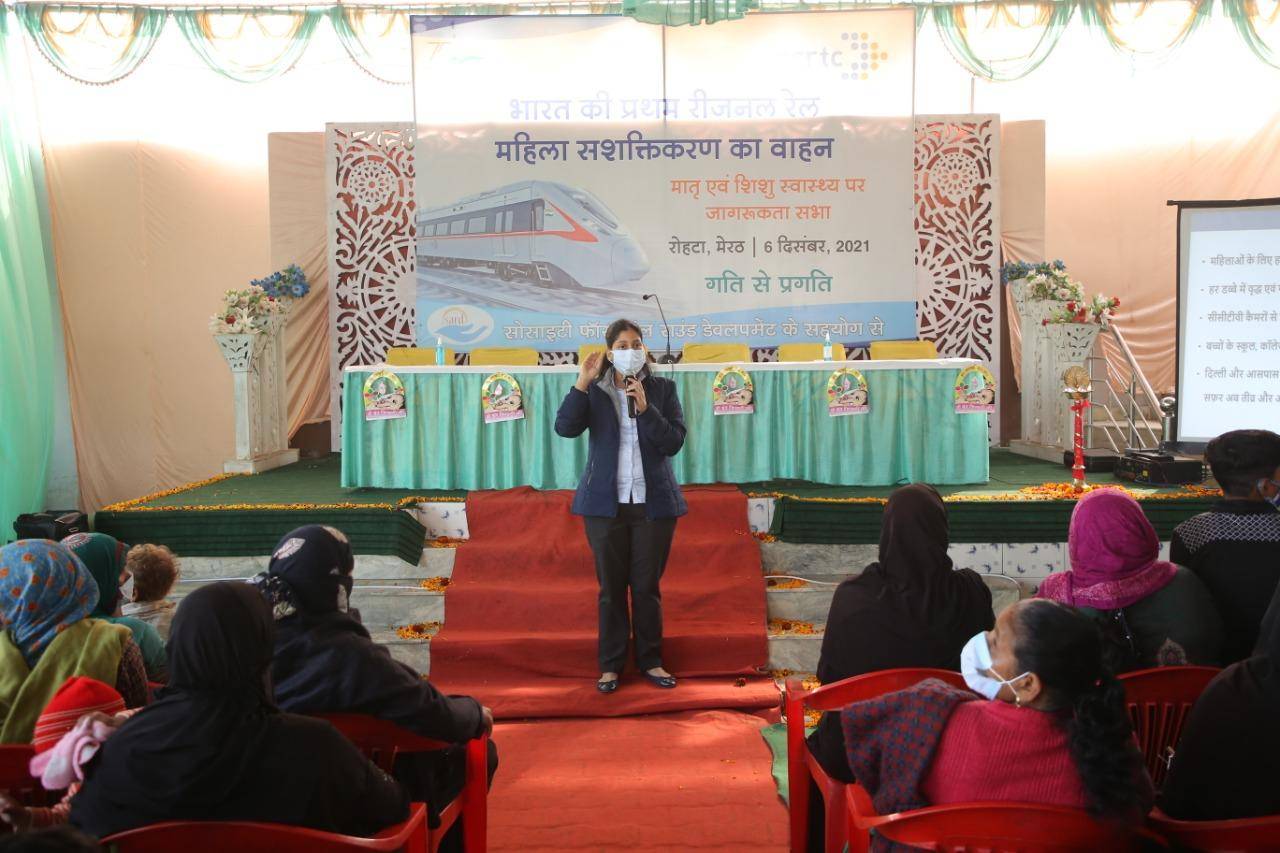
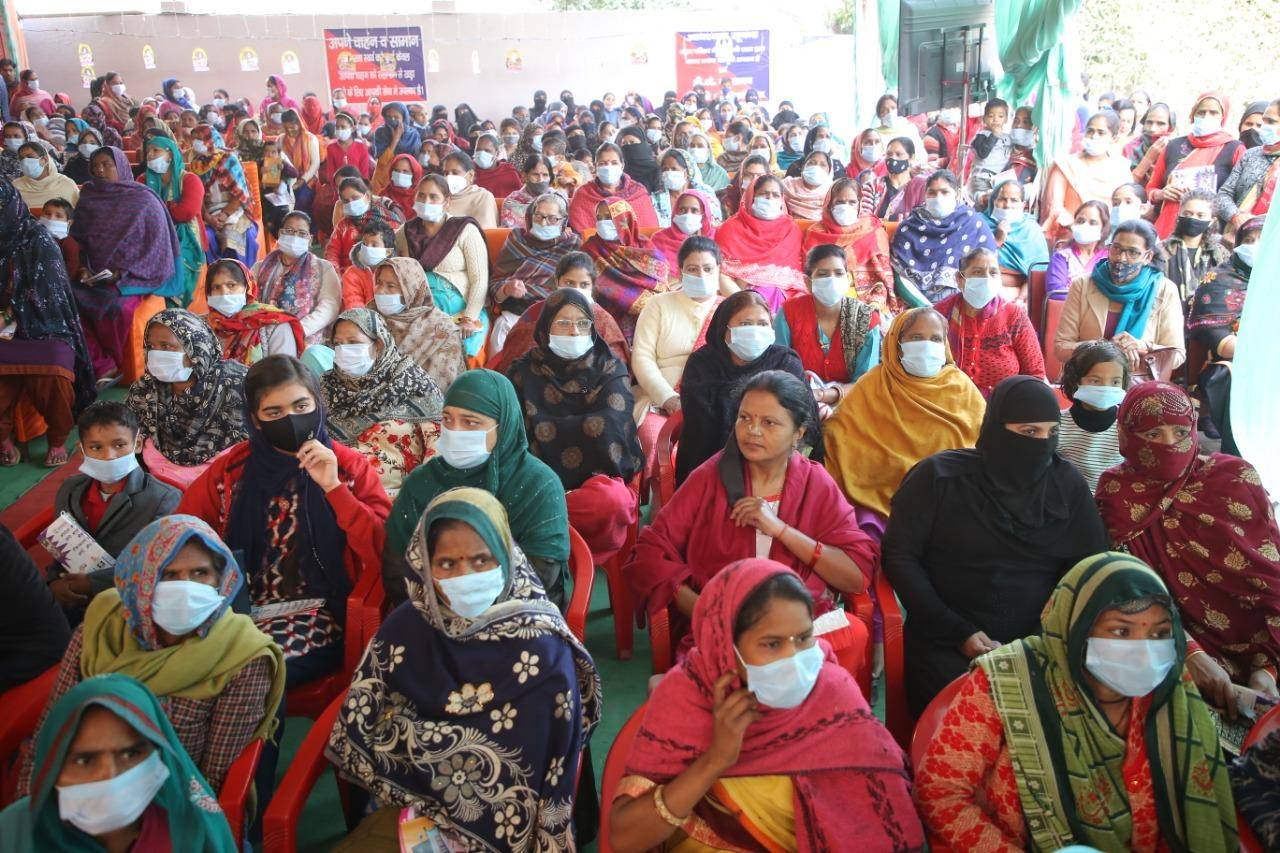
Whilst the launch of Delhi-Ghaziabad-Meerut Namo Bharat corridor is expected to provide improved access to education, healthcare, and employment, thereby giving an impetus to an improved quality of life for people of NCR, JFPR grant aims to provide safe mobility and avenues for employability skills to offer copious socio-economic opportunities for the vulnerable and socially backward sections of society, particularly women, elderly and differently abled persons.
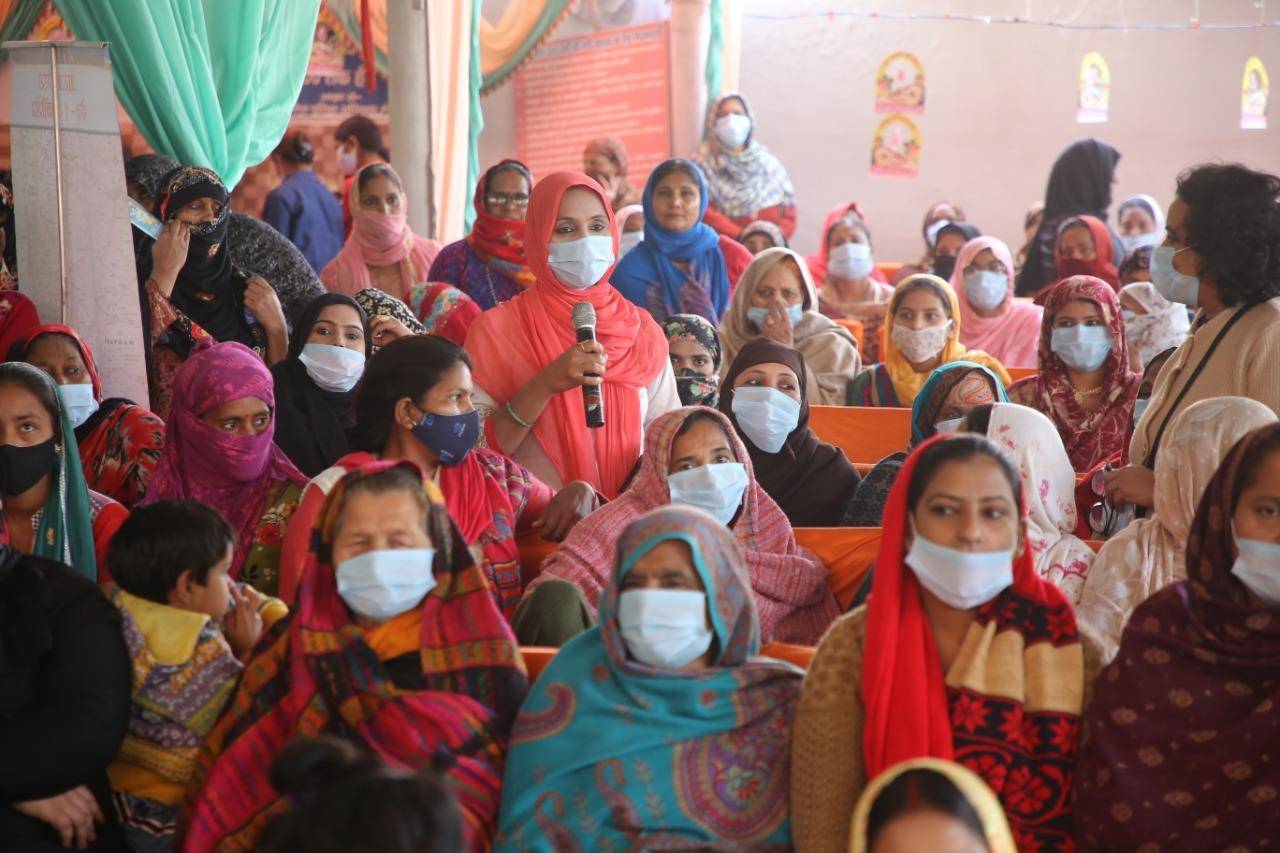
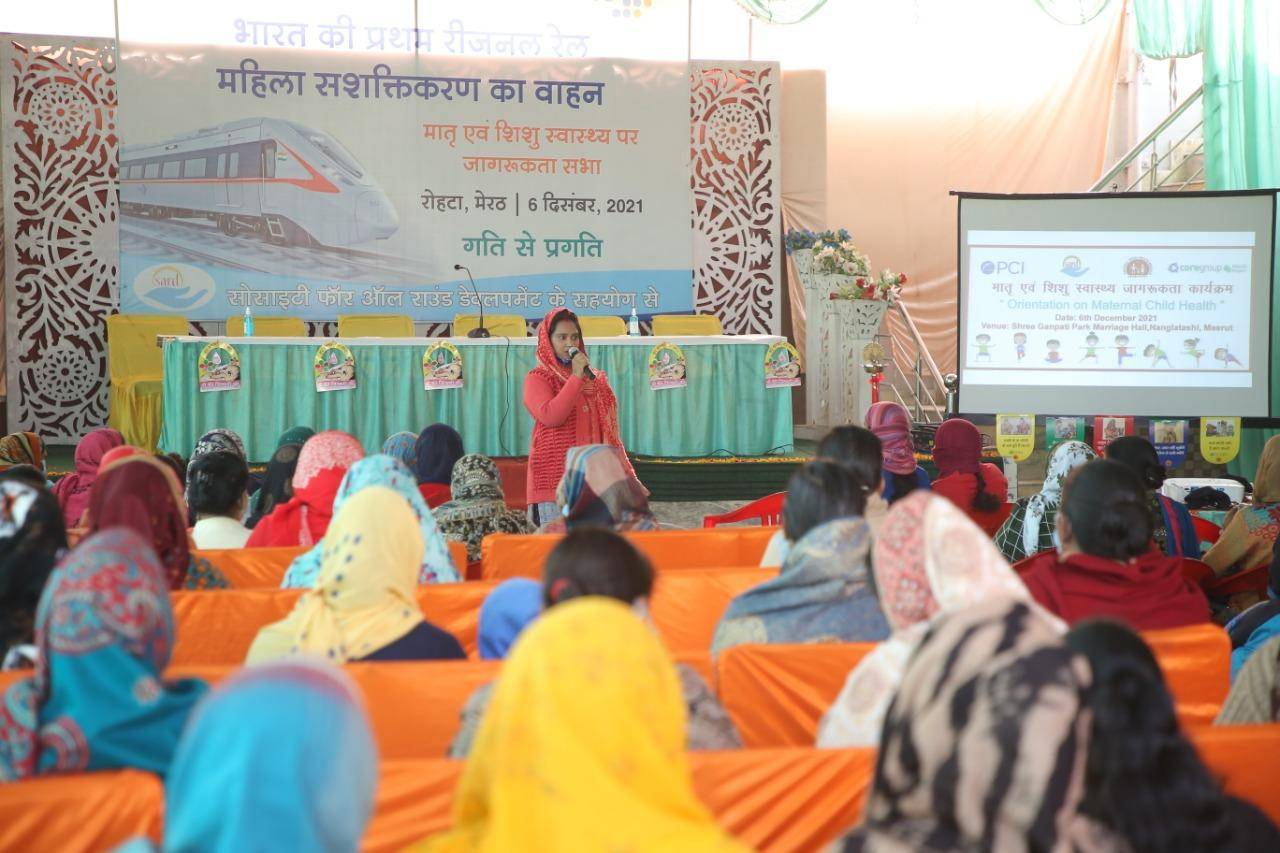
Primarily, JFPR program for Delhi-Ghaziabad-Meerut Namo Bharat delineates 3 outputs:
Output 1: Safe mobility for elderly, women, children and differently abled.
Output 2: Awareness on safe mobility and self-defense, and employability skills for female students in selected institutes along the Namo Bharat corridor.
Output 3: Gender and socially inclusive public toilets around Namo Bharat stations.
An important component of this program is to organize gender sensitization of public transport professionals and training women to be mobility service providers (as e-rickshaw and taxi driving professionals). This will contribute in improving employment prospects and, additionally, also alleviate the perception and experience of safer transportation options by making women take lead in providing last-mile connectivity.
Persons with disabilities are often subjected to multitude of challenges while using public transport systems because of lack of differently-abled friendly infrastructure as well as inability of this section of population to access assistive aids owing to financially compromised state.
JFPR grant shall focus on providing assistive aids to differently-abled persons to improve their mobility and thus gain better avenues for income generation.
Factoring in the role of EVs in alleviating climatic concerns and keeping in agreement with the priority areas of Government of India, enhanced JFPR has expanded its scope to utilize e-rickshaws, electric cars, and electric buses (as a promising alternative to vehicles running on petrol or diesel) to enable training process as part of Output 1 – Safe mobility for elderly, women, children, and differently abled persons – of original JFPR grant.
With a positive approach towards procuring electric rickshaws and cars to impart trainings to women beneficiaries, JFPR and its executing partner NCRTC shall be able to set forth an example for the beneficiaries who shall, in addition to getting trained in driving skills, also equip their knowledge with the benefits of driving EVs.
Construction of socially inclusive gender-neutral toilets forms an essential focus area of JFPR grant. Since lack of adequate public toilet facilities restricts movement of women, girls, and persons with disability, it is crucial to develop public toilets to ensure sanitation, hygiene, accessibility, safety, and privacy for everyone.
To make the toilets environmentally sustainable advanced technology will be leveraged to recycle waste-water in addition to use of solar panels.
The project is expected to be completed by 30 August 2025.
One of the fundamental components of JFPR grant pertains to spreading awareness on safe mobility of women, young girls, elderly, and differently abled persons while accessing public transport. Lack of adequate safety measures while accessing public transport remains, inter alia, the most pressing concerns of mobility, especially among women and young girls.
Pronouncedly observed unpleasant behavior of certain riders in public transport tantamount to harassment as experienced by fellow riders, particularly women and young girls. Not only does actual harassment faced by women restricts their mobility, the fear of being subjected to intimidation might also contribute as a major deterrent, thus, serving as a crippling effect in usage of public transport.
JFPR grant focuses on contributing towards gender-responsive mobility. Since public transport service providers form one of the key stakeholders in ensuring safety and security of passengers during their journey, their role is pivotal in ascertaining gender-responsive mobility services. Hence, it assumes great deal of significance to impart gender sensitization trainings to drivers and conductors of buses and other public transport modes to generate awareness on issues experienced by women and girls in accessing safe transportation.
With its veritable emphasis on ensuring safe mobility during last-mile connectivity while accessing Namo Bharat, NCRTC, as part of JFPR grant’s output to improve the mobility experience of women and girls, organized GESI sensitization programs with a total of 100 drivers and conductors of Uttar Pradesh State Road Transport Corporation (UPSRTC). While the first GESI sensitization program with 50 bus drivers and conductors was organized in June 2022 at Duhai depot, second program was organized in November 2022 at Bhaisali Namo Bharat station site (in Meerut) with a different set of 50 bus drivers and conductors from UPSRTC.
The sensitization programs, conducted by gender and mobility experts, imparted information about the Namo Bharat corridor and primarily focused on issues pertaining to gender-based harassment and molestation, women’s right to safe mobility and role and behavior of public transport service providers in ensuring safety and security of women, elderly, and differently abled persons. One of the critical points of program encompassed sensitization on usage of gender-sensitive lexicon to promote pleasant commuting experience.
NCRTC intends to undertake more such GESI programs periodically with different groups of public transport service providers across the radius of Namo Bharat corridor. The idea behind such sensitization programs is to initiate dialogues among the transport service providers who are engaged in providing last-mile connectivity and instilling in them a sense of gender equality and inclusion.
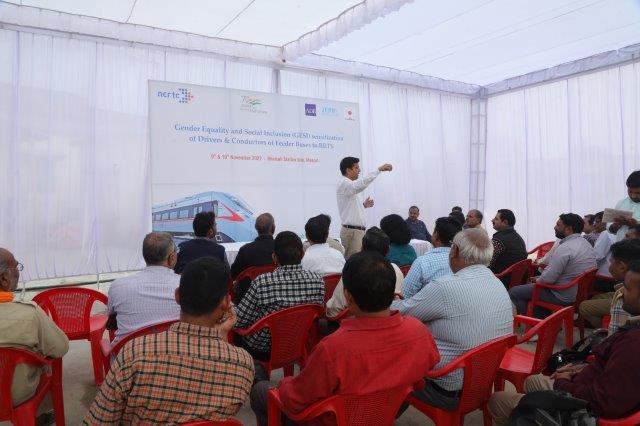
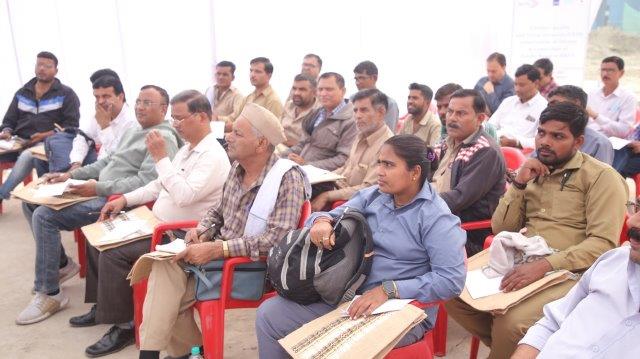
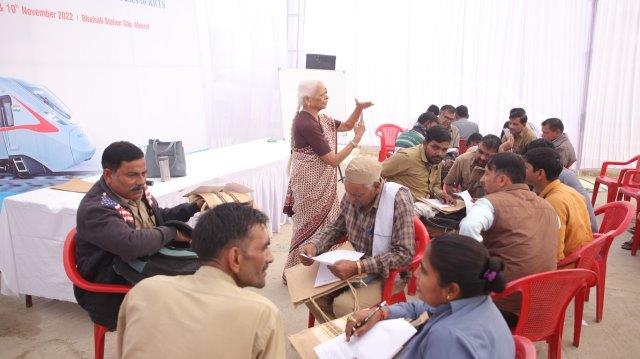
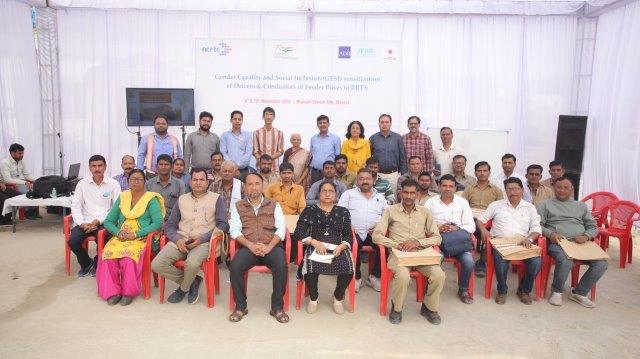
With its veritable emphasis on the need for and importance of gender-responsive mobility across Delhi-Ghaziabad-Meerut Namo Bharat corridor, NCRTC organized a community outreach and awareness program as part of the JFPR grant. The program, organized on 28th February 2023 in New Delhi, is part of the endeavour to integrate the transgender community with the mainstream population and disseminate information on providing safe and secure commuting experience to them via Namo Bharat.
The community program saw attendance of more than 100 participants. The program was focused to impart information about Namo Bharat and the potential benefits it offers as a new-age medium of public transport. In addition, this program also provided an opportunity to learn about the challenges this section of the population faces while commuting in public transit modes. Such learnings may be conducive in making the commuting experience more pleasant for the transgender persons.
The program commenced with an in-depth informative session about the first Namo Bharat corridor and its potential benefits such as safe, secure, fast and reliable mode of public transit. The gender and mobility experts further took dedicated sessions on the role of improved mobility in access to enhanced income-generation opportunities, and access to healthcare services located in bigger cities/towns.
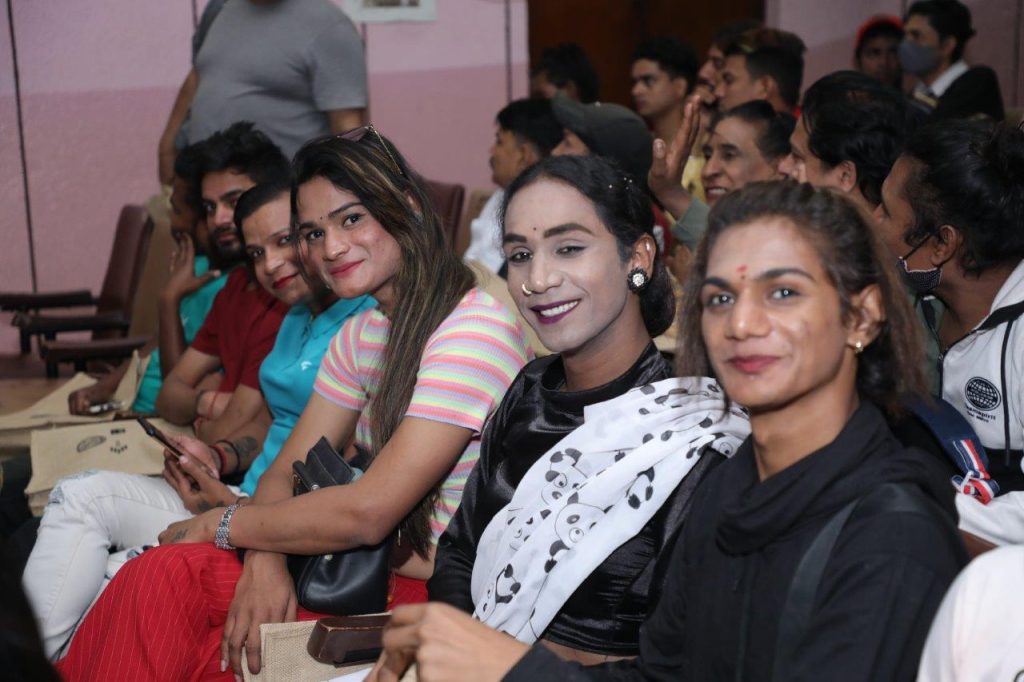
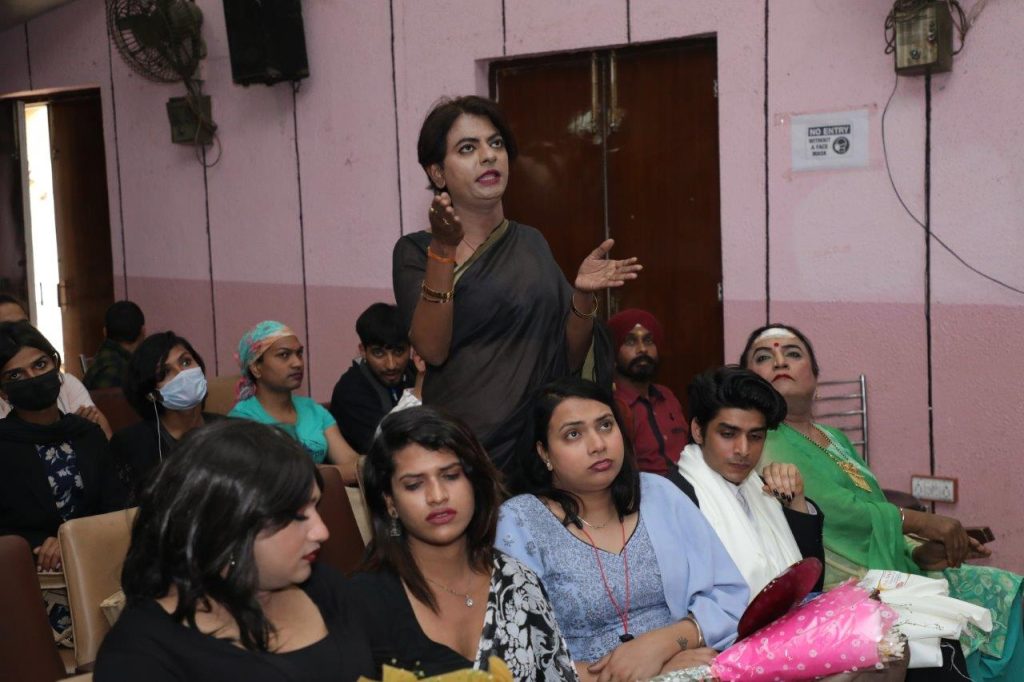
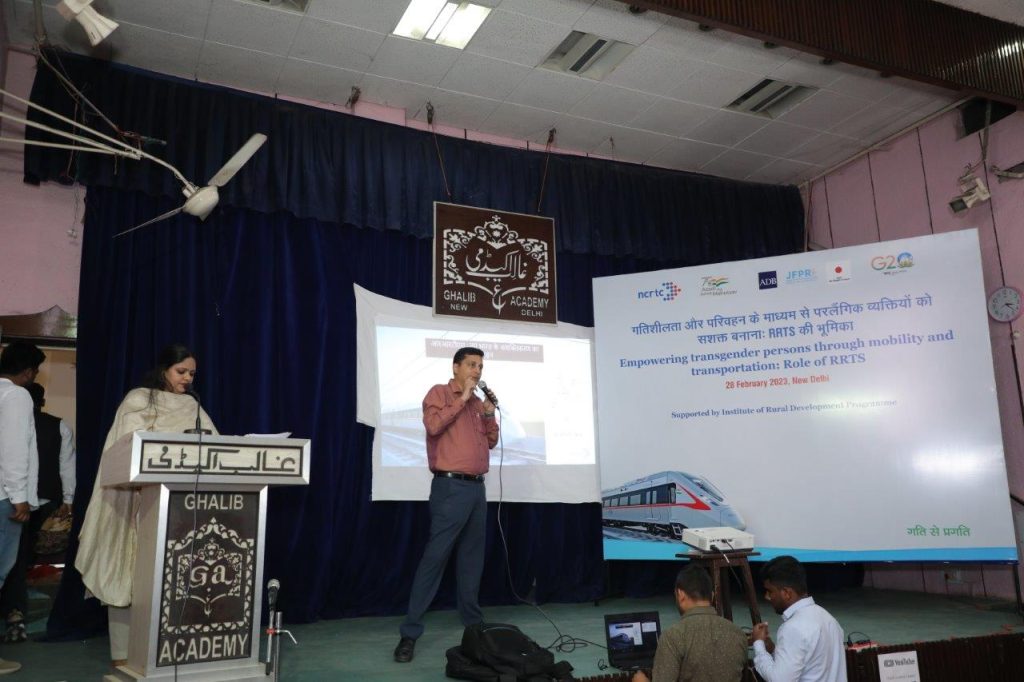
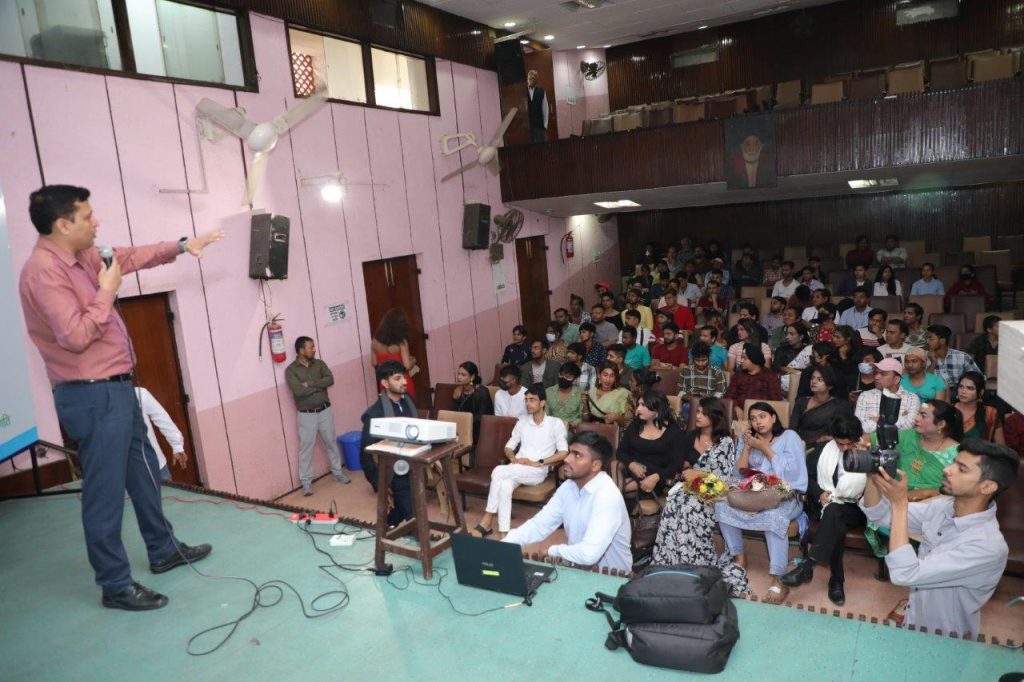
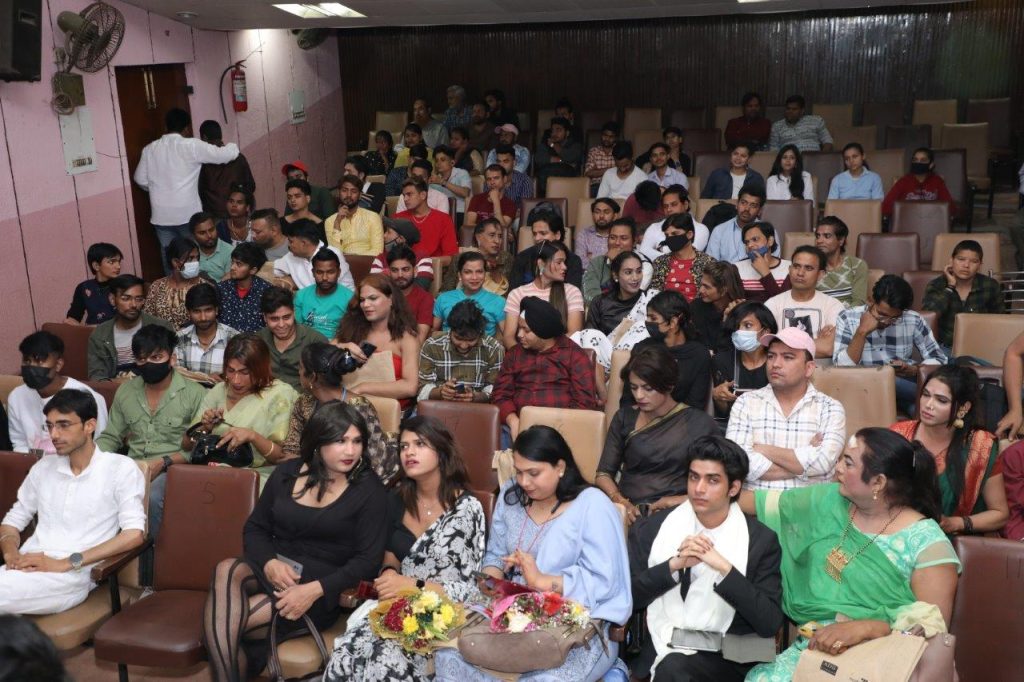
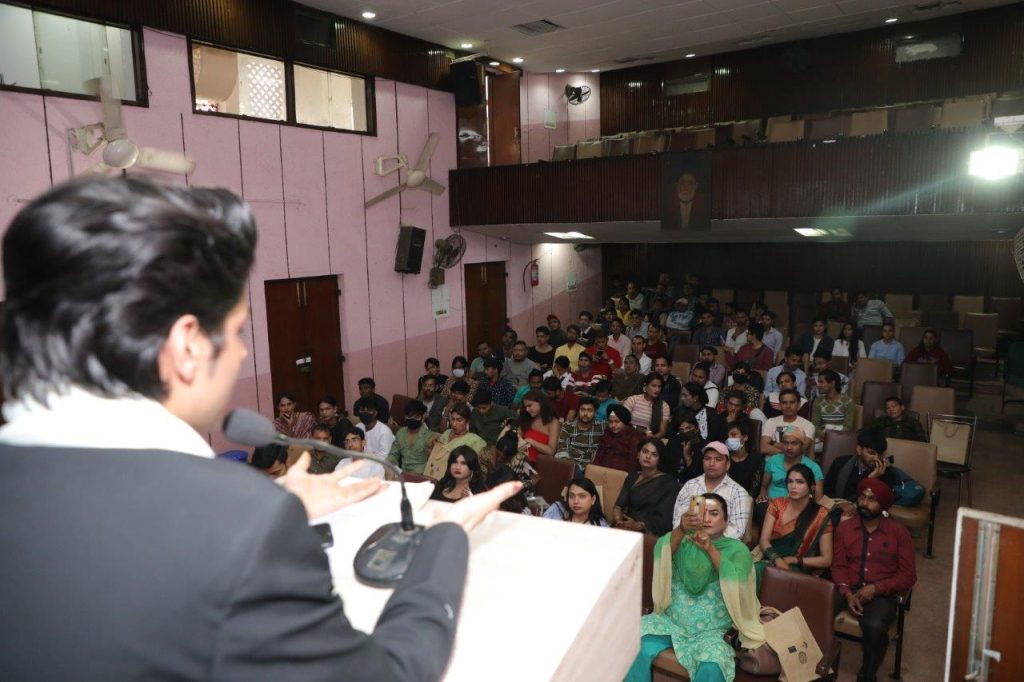
Keeping in consonance with the objective to ensure improved mobility experience and enabling women and girls, JFPR is regularly organizing self-defence training sessions for girls studying in colleges across Meerut and Ghaziabad districts of Uttar Pradesh.
Upon completing their education, once they commence professional lives, they will be using public transit modes and travel to different locations. Hence, their safety becomes crucial. These self-defence training sessions, imparted by Central Industrial Security Force (CISF) trainers, are expected to generate a sense of confidence and assurance among girls by preparing their minds and bodies to respond to security threats and anti-social elements.
In addition to the self-defence trainings, information about the first Namo Bharat corridor and potential benefits it offers in providing safe & smooth ridership was also disseminated. Such information and training sessions are expected to alleviate the perception and experience of safer transit options, thereby encouraging girls and women to adopt Namo Bharat as a transit medium.
With this notion, JFPR further intends to impart self-defence trainings to over 900 girls across the colleges in Ghaziabad and Meerut districts of Uttar Pradesh.
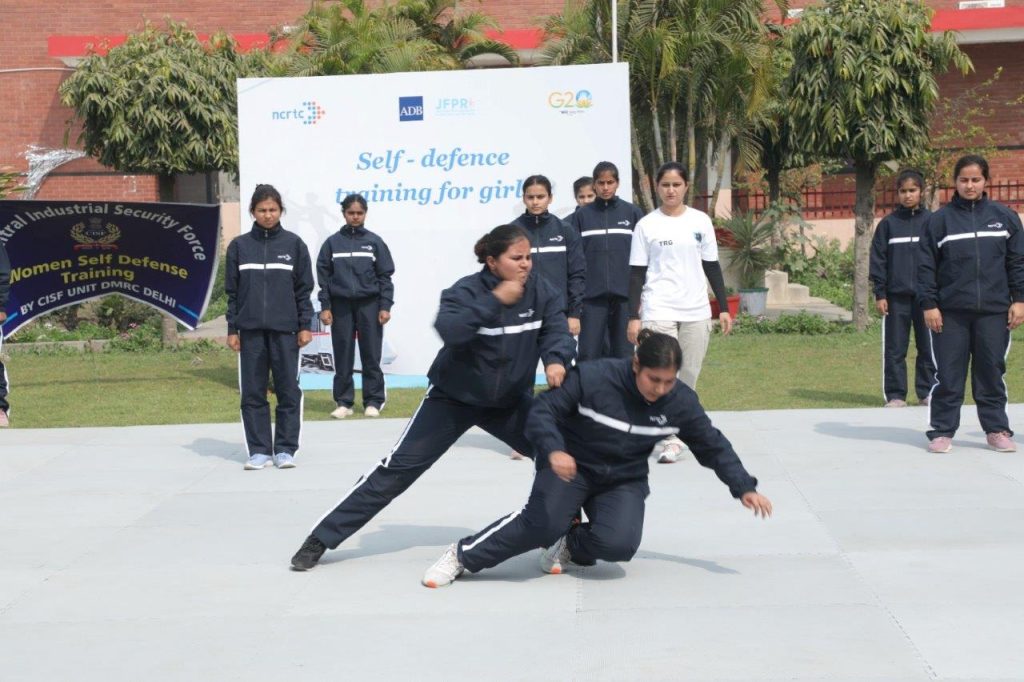
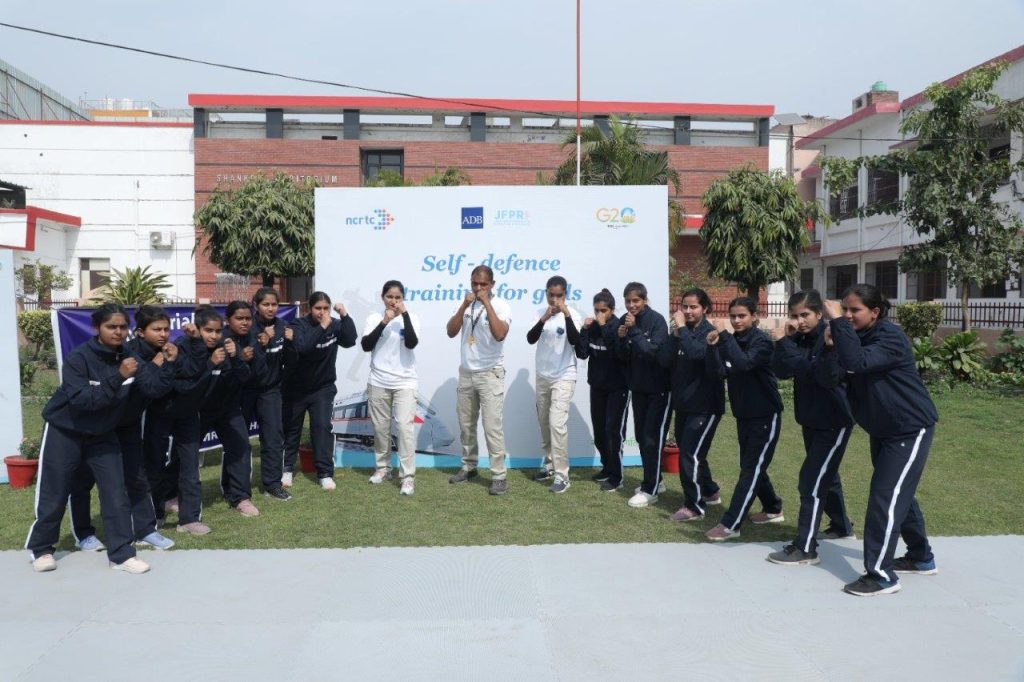
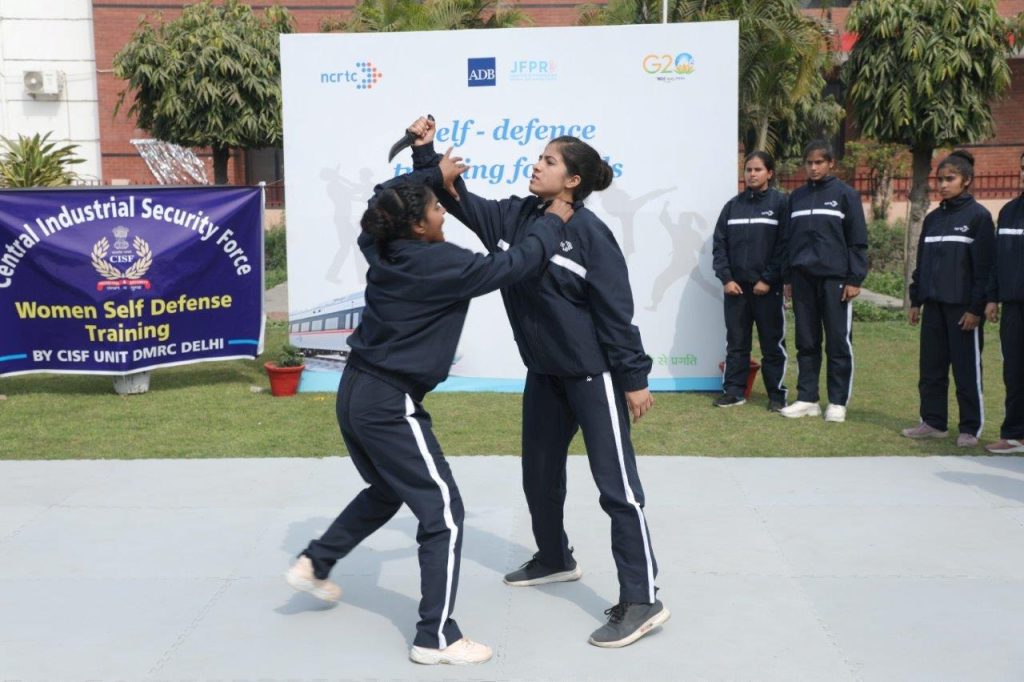
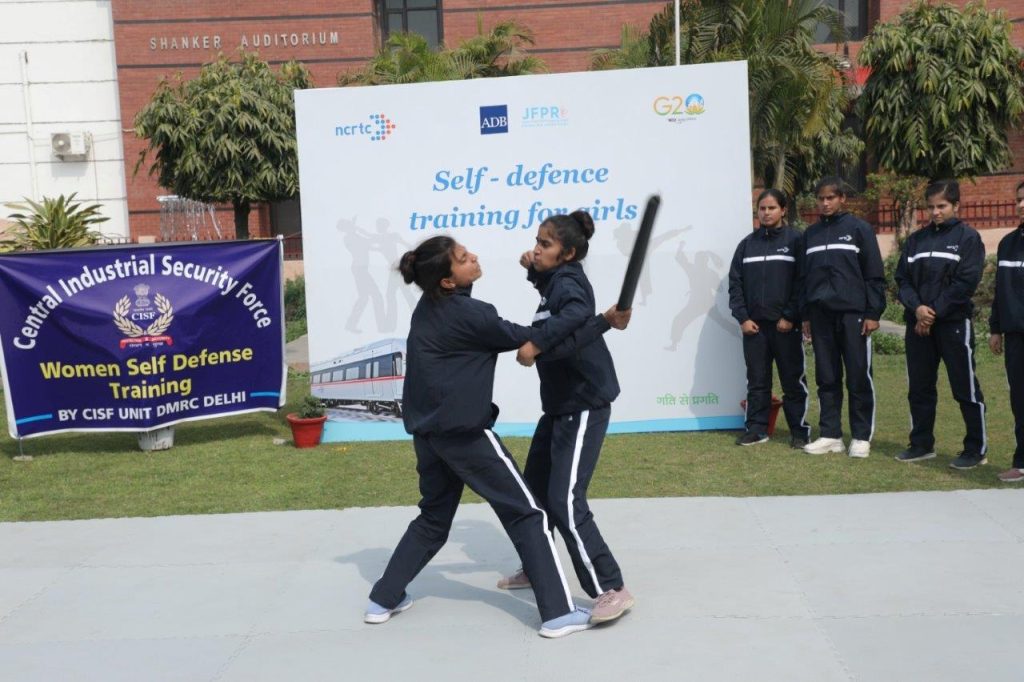
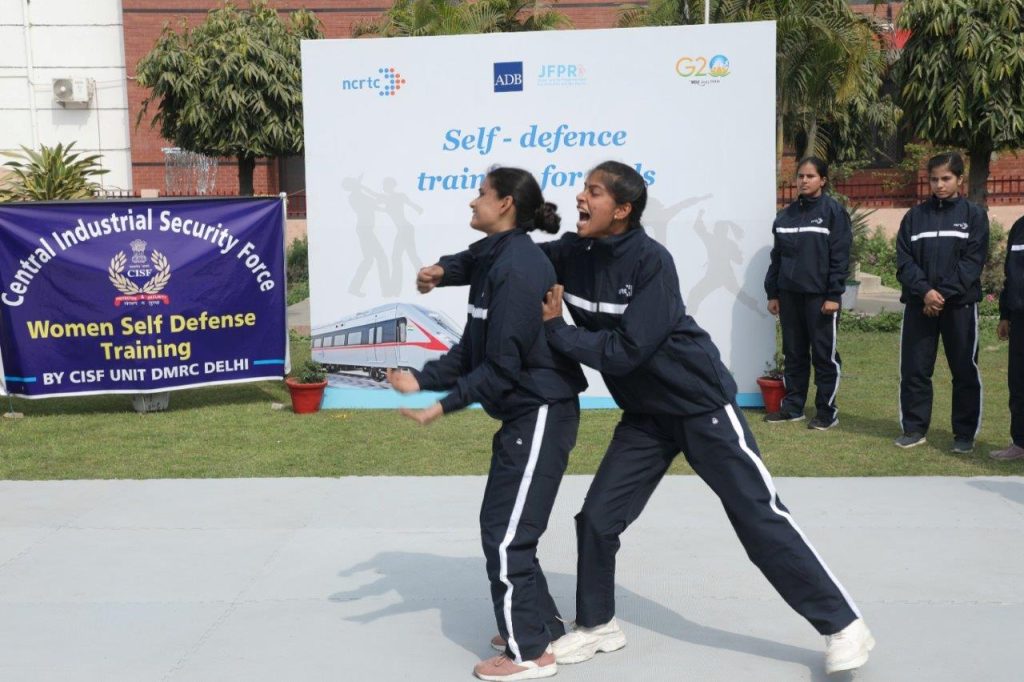
With sustained and consistent efforts to train a total of 900 girls in self-defence skills, JFPR has presently imparted trainings to 184 girls at two colleges, namely, DN Degree College and DN Polytechnic College in Meerut. The trained girls were diligently provided training by the expert instructors from Central Industrial Security Force (CISF).
These 184 trained girls were distributed participation certificates in a program which was attended by NCRTC and CISF officials at DN Degree College. The personal experiences shared by some of the trained girls underscored an elevated degree of determination and boosted morale.
The certificates would not only serve as a testimonial for these trained girls but shall also galvanize more and more girls to learn self-defence skills in order to equip themselves with confidence and instill a sense of fortitude to encounter any untoward situation.
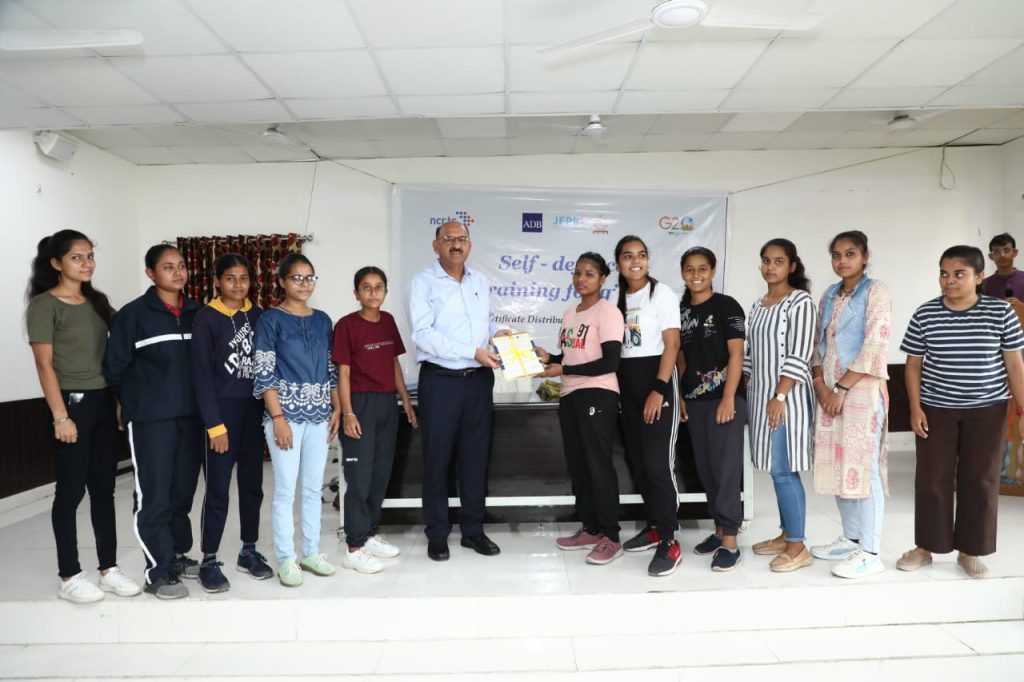
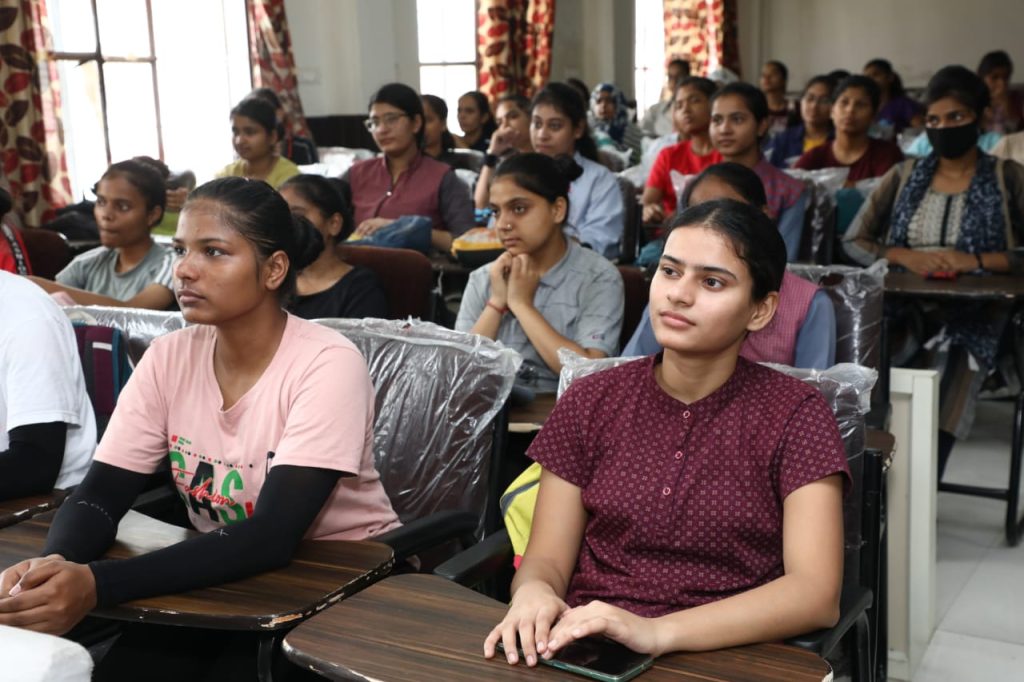
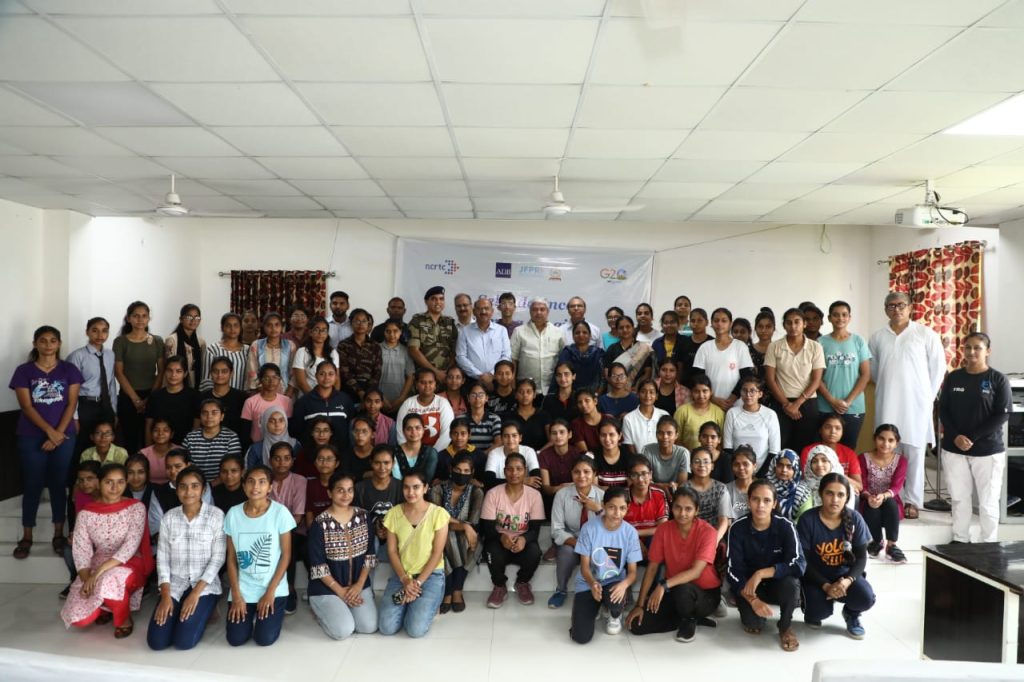
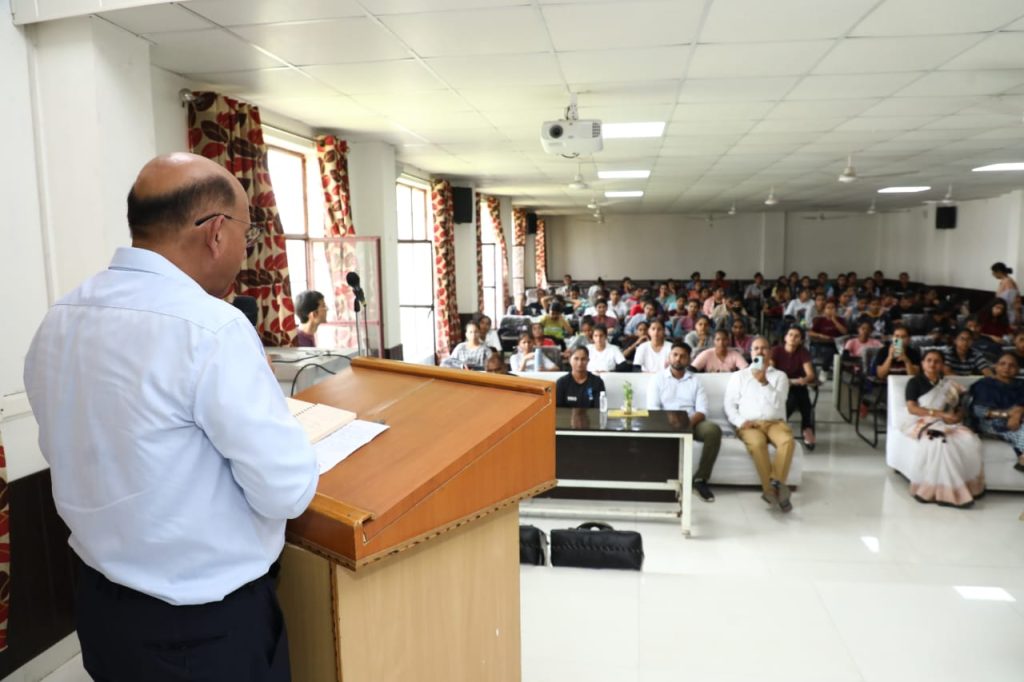
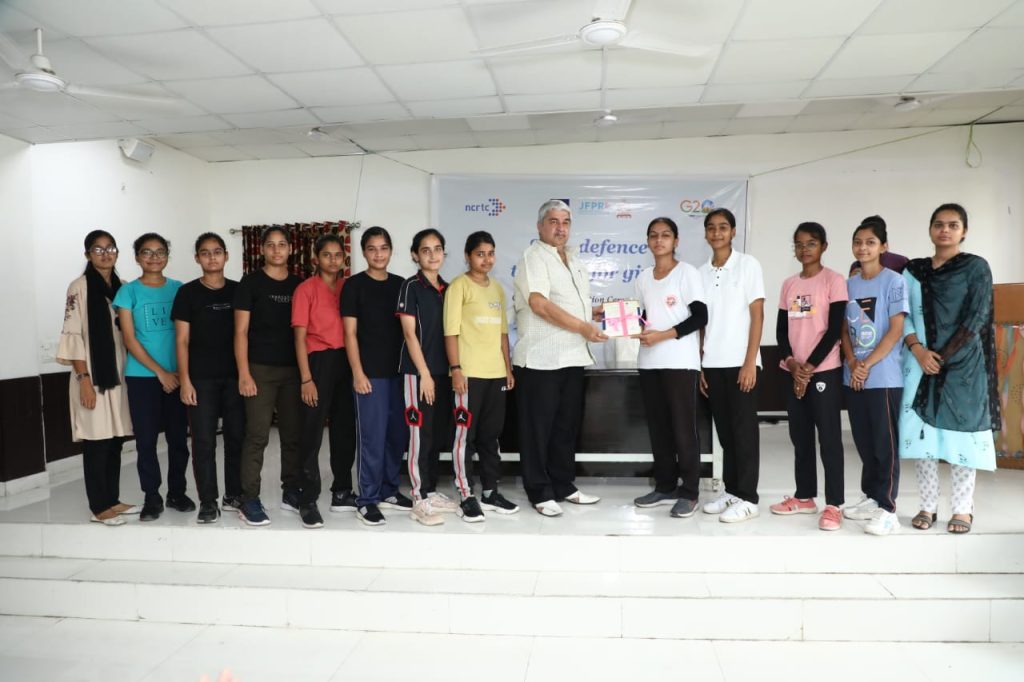




Copyright @2016 – www.ncrtc.in. All Rights Reserved. All images on the website are representations. The actual assets may be different…